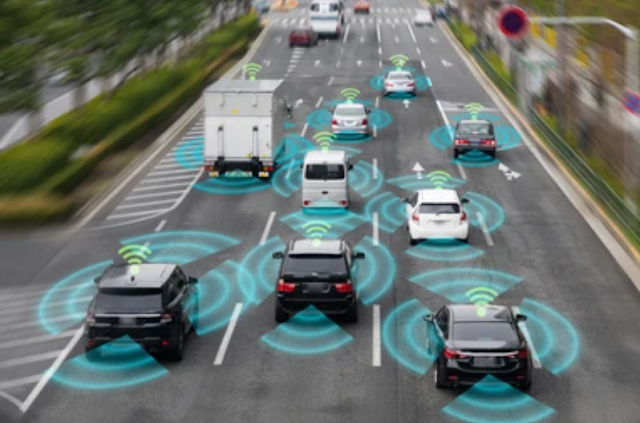AI in Transportation: Enabling Smart and Efficient Systems
AI (Artificial Intelligence) is playing a pivotal role in transforming the transportation industry by enabling smart and efficient systems. With the integration of AI technologies, transportation systems are becoming more intelligent, automated, and responsive. Here is a detailed exploration of how AI is revolutionizing the transportation sector.
Autonomous Vehicles:
AI is at the core of autonomous vehicles, enabling them to perceive and navigate the environment without human intervention. Machine learning algorithms process sensor data, such as lidar, radar, and cameras, to detect and interpret road conditions, traffic signs, and obstacles. AI algorithms enable autonomous vehicles to make real-time decisions, plan optimal routes, and ensure safe and efficient transportation.
Traffic Management and Optimization:
AI-powered traffic management systems use real-time data from various sources, including sensors, GPS, and traffic cameras, to monitor and optimize traffic flow. Machine learning algorithms analyze historical and live traffic data to predict congestion patterns and suggest optimal traffic management strategies. AI-driven traffic management systems reduce congestion, improve traffic flow, and enhance overall transportation efficiency.
Route Planning and Optimization:
AI algorithms optimize route planning by considering various factors, such as traffic conditions, road networks, and real-time data. Machine learning models can analyze historical data and learn from previous routes to suggest the most efficient and time-saving paths. AI-powered route planning and optimization systems reduce travel time, fuel consumption, and emissions, while improving the overall transportation experience.
Predictive Maintenance:
AI enables predictive maintenance in transportation systems by analyzing sensor data from vehicles and infrastructure. Machine learning algorithms can detect anomalies and patterns in data to predict equipment failures and schedule maintenance proactively. Predictive maintenance minimizes downtime, improves asset utilization, and reduces maintenance costs in transportation fleets and infrastructure.
Intelligent Transportation Systems (ITS):
AI is the driving force behind intelligent transportation systems. These systems use data analytics, machine learning, and real-time information to optimize traffic flow, manage transportation networks, and enhance safety. AI-powered ITS solutions integrate various technologies, such as traffic signal control, incident detection, and adaptive traffic management, to create efficient, safe, and sustainable transportation ecosystems.
Logistics and Supply Chain Management:
AI improves logistics and supply chain management in transportation by optimizing operations, reducing costs, and improving delivery efficiency. Machine learning algorithms analyze data on shipping routes, demand patterns, and inventory levels to optimize transportation schedules, route planning, and fleet management. AI-driven logistics and supply chain management systems enhance operational efficiency, reduce delays, and minimize costs across the transportation network.
Passenger Experience and Personalization:
AI technologies enhance the passenger experience by providing personalized and context-aware services. Natural language processing (NLP) enables AI-powered virtual assistants and chatbots to interact with passengers, answer queries, and provide real-time travel information. AI-driven systems can offer personalized recommendations for travel options, amenities, and entertainment, enhancing the overall passenger experience.
Safety and Security:
AI plays a critical role in enhancing transportation safety and security. Machine learning algorithms can analyze data from various sources, including surveillance cameras and sensors, to detect potential security threats, monitor crowd behavior, and identify abnormal activities. AI-powered systems enable real-time incident detection, emergency response coordination, and proactive security measures in transportation networks.
The implementation of AI in transportation brings numerous benefits, including improved safety, increased efficiency, reduced congestion, and enhanced passenger experience. However, challenges such as data privacy, cybersecurity, and ethical considerations need to be addressed to ensure the responsible and secure use of AI technologies in transportation.
In conclusion, AI is revolutionizing the transportation industry by enabling smart and efficient systems. As AI continues to advance, transportation networks will become more connected, automated, and sustainable, offering safer, greener, and more convenient travel experiences for passengers while optimizing operations and reducing environmental impact.











